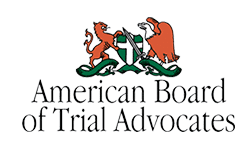What Should You Do if You Drive Past an Accident Scene?

One of the leading causes of traffic congestion is rubbernecking. Rubbernecking is the term for when a driver takes their eyes off the road to look at a passing distraction, such as a police officer stop or car accident.
Ironically, the act of rubbernecking to look at a car accident can cause another accident.
What should you do if you drive past an accident scene?
If you don’t stop to offer assistance, you should call 9-1-1 to report the accident. You wouldn’t know if someone was seriously injured and needed medical attention. You also don’t know if they are able to call for help. You should not assume someone driving past the accident already made that call.
If everyone thought that way, the call would never be made. Calling 9-1-1 to report an accident won’t take up much of your time.
At that point, your responsibility is over unless you witnessed the accident as it occurred. In that situation, you might want to report what you saw to the police in case you can’t stop. Your witness statement can support the person who was not at fault in the accident.
When you consider that Mississippi has the highest car accident death rate per 100,000 people (per data from the National Safety Council), it is likely you might encounter an accident during your road trips. Unfortunately, you might also become involved in an accident. If you are one of the parties involved in the accident, your responsibilities are quite different and obligated by law. According to Mississippi law:
“The driver of any vehicle involved in an accident resulting in injury to or death of any person shall immediately stop such vehicle at the scene of such accident or as close thereto as possible but shall then forthwith return to and in every event shall remain at the scene of the accident until he has fulfilled the requirements of Section 63-3-405.
Every stop under the provisions of subsection (1) of this section shall be made without obstructing traffic or endangering any person’s life more than is necessary.
Except as provided in subsection (4) of this section, if any driver of a vehicle involved in an accident that results in injury to any person willfully fails to stop or to comply with the requirements of subsection (1) of this section, then such person, upon conviction, shall be punished by imprisonment for not less than thirty (30) days nor more than one (1) year, or by a fine of not less than One Hundred Dollars ($100.00) nor more than Five Thousand Dollars ($5,000.00), or by both such fine and imprisonment.”
There are additional things you need to do after getting involved in a car wreck.
Call the Police
Getting into an accident is going to be instantly traumatic. Once you assess the situation, you might discover that the accident caused more damage to your car than a physical injury, but it’s still a jolt.
If the accident is a minor fender bender without damage, you can proceed on your way without incident. However, if there is significant damage, injury, or worse, you need to call the police to the scene. When the police report to the scene, they will generate a crash report that details what happened.
That information will be based on what they observe and the statements provided by the parties involved in the accident. The crash report can also be the foundation of the accident you might present in an eventual insurance claim.
Consider Oncoming Traffic
If it is safe to leave your vehicles where they are, do not move them until the police show up.
If you can’t move them, then you should place flares or reflective warning signs (if you have them) on the road leading up to the accident. Before you move the cars, try to take as many photos of the scene as possible.
Exchange Information
The investigating officer who reports to the scene can collect the contact information from the people involved in the accident. They will also be able to obtain the required proof of insurance. Mississippi law requires you to have proof of insurance. You can snap a picture of that proof.
Don’t Discuss Who Was at Fault
In the aftermath of the accident, there will be a lot of discussion about what happened. You should not discuss who was at fault with the other driver involved in the accident. That means not admitting fault or apologizing.
When the police show up, you can provide them with an honest account of what you experienced. Anything you say can come back as an admission of liability.
Get Witness Information
There might be witnesses to the accident who have pulled over to help. If those witnesses can’t stay until the police arrive to take their statement, be sure to get their contact information.
You can also get that statement on video with your cell phone.
Make Arrangements for the Removal of Your Car
If you are unable to drive your car from the scene, you need to make arrangements to have it removed. Even if it is inoperable, it is still considered your property. That is why it is a good idea to have the number of a reputable tow truck company on your cell phone, just in case you get into an accident.
A tow truck operator might happen upon the scene and offer assistance. Unless you get their fees in writing before the tow, you should not automatically accept their support. They could be taking advantage of you.
It will also help to know where you should take the car if it can be repaired. It might have to be towed to your home for an insurance adjuster to inspect.
Speak to an Attorney
Your insurance policy might oblige you to report the accident to your insurance company.
Before doing that, it might help to speak with an experienced car accident attorney like you would find at Pittman, Roberts & Welsh, PLLC. We can provide the guidance you need to help you decide where you should file your claim and who should be held liable.
If warranted, we can take on your case and become your advocate, negotiating with the insurance company to help you receive the compensation you’re due for your losses.
We want to help you move on from the accident as quickly as possible.







